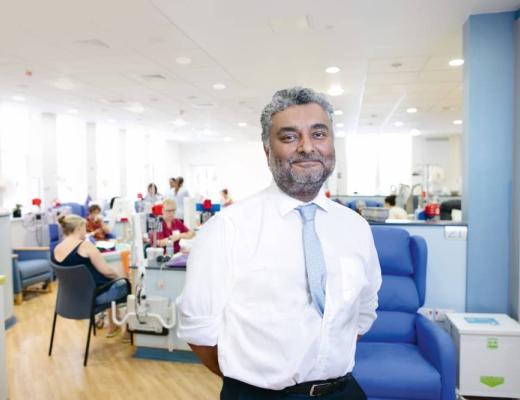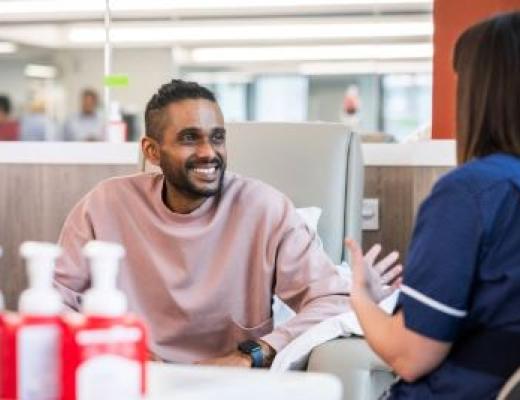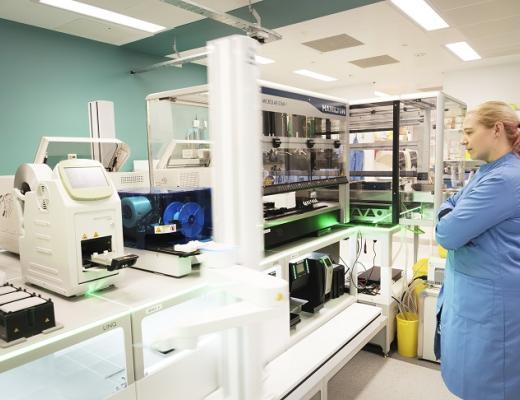Lung tumours treated with robot that 'zaps' cancer with heat
At The Royal Marsden, a treatment called radiofrequency ablation has been performed robotically on patients with lung tumours.
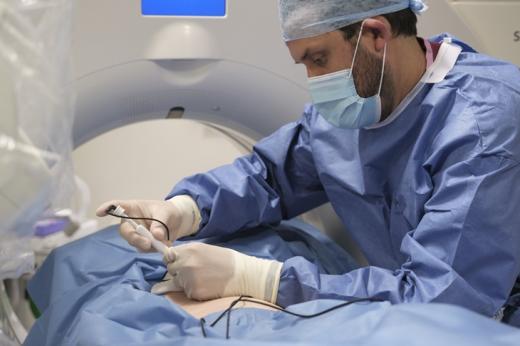
Radiofrequency ablation (RFA) is a type of cancer treatment that is minimally invasive. It uses heat made by radio waves to kill cancer cells.
The Royal Marsden is among just a handful of centres worldwide that provides robotic-guided ablation technology to treat lung tumours. As one of the few hospitals in the UK which have begun testing this new technology, The Royal Marsden has seen success in trials which have taken place at the hospital.
What does ‘robotic-guided’ mean?
RFA is traditionally guided by hand. The treatment uses a needle inserted through a ‘pinhole’ skin incision, just 1.5 millimetres wide. Compared with other surgical techniques, this can mean a faster recovery time, less pain, and no scarring.
But now, the treatment can be assisted with a robotic arm.
Robotic guidance is set to be a sea-change in our practice and seems even kinder for patients with small lung tumours than traditional ablation
Robotic technology improving patient outcomes
Researchers from The Royal Marsden compared 20 hand-guided lung ablations and 20 guided with the robotic arm.
Results from the study showed robotic procedures were highly accurate and required fewer needle adjustments than hand-guided ones. Complications, such as pain or collapsed lungs, were also lower for robotic procedures.
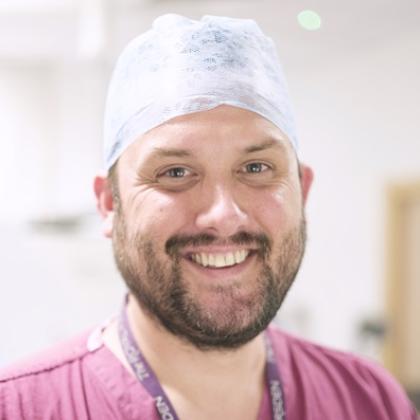
Dr Ed Johnston, Academic Consultant in Interventional Oncology, who is part-funded by The Royal Marsden Cancer Charity, said:
“Ablation can mean faster recovery, less pain, and no scarring for cancer patients. Robotic guidance is set to be a sea-change in our practice and seems even kinder for patients with small lung tumours than traditional ablation. We have previously performed robotic liver ablations successfully, so it’s encouraging even more patients can benefit from this new technology.”
Dr Nicos Fotiadis, Head of Interventional Radiology and co-lead on the study, said: “The Royal Marsden is one of only a few centres in the world offering robotic ablation to cancer patients and we are continuing to pioneer research into pinhole, interventional radiology procedures throughout the body. Ablation can be an excellent, life-extending option for patients with advanced cancers, who often have small tumours that have spread to other areas of the body, and we’d love to see it used more widely across the UK”.
Vikki’s story
Vikki Field, 70 from New Malden, was diagnosed with sarcoma in 2016, but found out that her cancer had spread to her lungs in 2018. Her lung tumours have been treated with three ablations, radiotherapy and, through a clinical trial, immunotherapy at The Royal Marsden. Vikki’s most recent ablation in July was performed robotically.
She said: “When I found out that my latest ablation would be performed robotically, I was intrigued. My sarcoma, which was in my uterus, was treated with a robotic hysterectomy at The Royal Marsden, and the recovery was excellent. I was up and about after just three weeks. This experience meant my expectations for the robotic ablation were good as I know firsthand how robotic technology can improve procedures.”
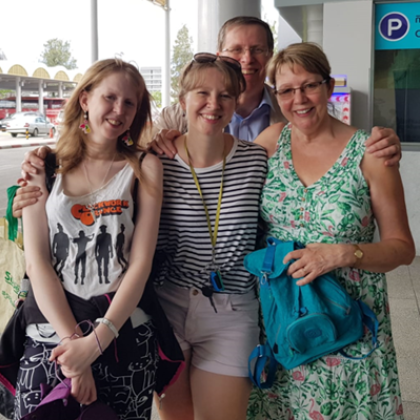
“My team had discussed other options including radiotherapy and surgery. I didn’t particularly want a dose of radiation, and surgery on my lung would have been quite intrusive, so I’m pleased they decided ablation was the best option this time. While it’s not easy, ablation is very straightforward and manageable compared with other treatments. You do feel a bit sore afterwards, but the recovery tends to be very quick.”
“I cannot praise The Royal Marsden enough. The staff are all so professional, caring and so kind. Thanks to the treatment I’ve received, I am also able to do the things I love, like reading, walking, and baking, as well as spending time with my friends and family.”
The study was supported by the National Institute for Health and Care Research Biomedical Research Centre (NIHR BRC) at The Royal Marsden and The Institute of Cancer Research, London, and the Royal College of Radiologists.
Your support helps us fund world-leading cancer experts
Thanks to supporters like you, we are able to provide funding for specialist cancer experts at The Royal Marsden. These experts lead pioneering clinical studies and conduct innovative research into new and better ways to treat cancer to transform the lives of people with cancer across the UK and beyond.
Discover more about ways you can support us today.
Read more stories on our blog
